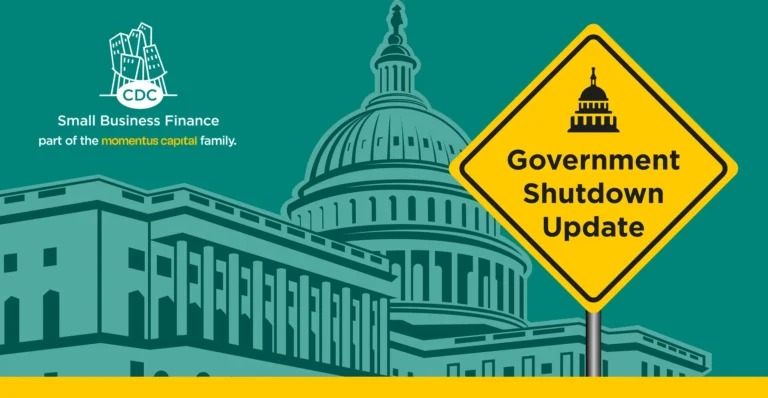U.S. Small Business Administration officials have revised a key form to clarify what many view as the murky subject of fee disclosure in the SBA lending process, in an effort to throw much-needed light on the practice and ensure SBA loans remain affordable, industry experts say.

Made mandatory on Nov. 1, the major update involves the revisions of SBA 159 form. This is a document that SBA lenders and borrowers alike need to fill out and submit to the SBA if anyone was compensated by or on behalf of the loan applicant in connection to the loan. The form is used in both the 504 and 7(a) loan programs.
In the latest version, the final form’s purpose is to clarify a slew of requirements that previously were misinterpreted or unintentionally overlooked by some lenders and borrowers, which caused potential compliance issues.
“The latest revamp of the SBA 159 form is unique because now it directly ties proper disclosure and identifies responsible parties to filling out the form to follow regulations and SOP for the agency,” said Mike Owen, an industry expert on SBA policy and chief credit officer at leading small business lender CDC Small Business Finance.
What the SBA 159 Form Clarifies
The latest version of the SBA 159 form spells out:
-
- When you’re required to complete it. If a so-called “agent” has been paid a fee by or on behalf of the small business borrower or SBA lender in connection to the SBA loan application, the form must be completed. Agents can include loan packagers, consultants, lender-service providers, and those offering broker and referral services.
- Who needs to fill it out. If an agent is compensated by either the loan applicant or SBA lender, both the lender and applicant must fill out and sign the SBA 159 form. Agents paid by the applicant must also complete and sign the document. The lender also needs to let the loan applicant know in writing that they’re not required work with third parties during their course of their loan.
- When is it not required? The following are NOT considered agents as it relates to the SBA 159 form, so the form is not needed: attorneys involved in 7(a) or 504 loan closing; a loan applicant’s accountant performing their usual services; realtors receiving a commission from a sale, and more. (Click here for a comprehensive list.)
Related: For the complete text of the SBA 159 form update
-
- What needs to be disclosed. The SBA wants specifics including packaging fees, fees for preparing financial statements for a loan applicant, fees charged by consultants, and those who broker or refer loan deals. Another key point is fees can only be charged for services that have been provided, not anticipated work.
- The level of detail required for disclosures. When it comes to fees, there should be a proper accounting of what work was done to incur the fee, the hours worked and the hourly rate. Attaching this explanation to the actual SBA 159 form is only required when the total fee amount is more than $2,500. However, the SBA could request this information from you down the line, so it’s important not to skip this step.
- Other specifics:
○ A big no-no: Agents cannot be paid twice — by the borrower applicant and the lender — for the same service rendered.
○ Just to be clear: The lender must tell the applicant in writing that the applicant does not have to use an agent to help with the loan-application process.
What’s Really Behind the SBA 159 Form Changes?
The payment of third-party fees is actually a common practice within the SBA lending environment. Oftentimes banks, SBA lenders and loan applicants will engage with third-party individuals to assist in the overall loan process. And as a result, these third parties will be paid fees for those services.
Sometimes these fees are known by the borrower. And in other cases, such as when a referral agent is used, they may not.
The aim of the updated SBA 159 form is to help borrowers understand what’s happening behind the scenes and whether these fees affect the overall affordability of their SBA loan.
Related: Read Smith’s take on the SBA 159 Form Update
Ethan Smith — managing partner of law firm Starfield & Smith, which specializes in SBA compliance — says the revamp is a step in the right direction in terms of bringing fees to light. But he’s not sure if the update specifically targets the core issue here: those breaking the rules continuing to do so.
As both the SBA 504 and SBA 7(a) loan programs continue to grow in loan volume and significance, they’ve begun to attract more attention from legislators on the Hill, said Smith, who works with different types of SBA lenders across the nation. This changing dynamic could mean increased oversight and possible enforcement of SBA issues such as the payment and reporting of third-party fees.
“Anyone looking to skirt around the rule and not comply and only get a slap of wrist are kidding themselves,” Smith said.
SBA 159 Form Update: Unintended Consequences?
An SBA 504 real estate loan involves the coordination of three parties: a bank, a CDC (also known as a certified development company or a nonprofit lender), and the loan applicant.
Nowadays, it’s entirely common practice for banks to pay income to third parties to help place these loans. Owen, chief credit officer, worries banks who normally do this will be unfairly impacted by the form update. In other words, borrowers could view the use of referral agents negatively even though the practice is an altogether standard one.
The use of an agent to assist an applicant with loan placement or the management of the loan process on an applicant’s behalf is not always a negative, Owen explains. Most agents bring a specialization of service and industry knowledge to the table, adding tremendous value to the loan process that is not second nature for a loan applicant. That value often makes the tougher deal more marketable or guides the loan request closer to securing the right financing needed.
Owen suggests to borrowers who learn that their bank paid a third-party fee to open up and ask questions: What was the fee for? Does it increase my cost of doing business? Did the use of an agent help in securing my loan or hinder?
Smith, of Starfield & Smith, says it’s too early to say whether the revamp will increase compliance and transparency within the SBA lending world or if it will drive bad players further into the underground.
But he believes the update is a positive move forward to help level the playing field for lenders.
“As they say, sunlight is the best disinfectant,” Smith said.
CDC Small Business Finance is a leading U.S. lender and award-winning nonprofit. Our team stays on top of key SBA policy changes to ensure that when you’re ready to apply for an SBA loan, you are poised for success.
Tell our loan experts about your business, and they’ll work to match you with a financing plan, SBA or otherwise, that best suits you. Let’s talk! Reach us at loaninfo@cdcloans.com or (619) 243-8667.
In case you missed it:






